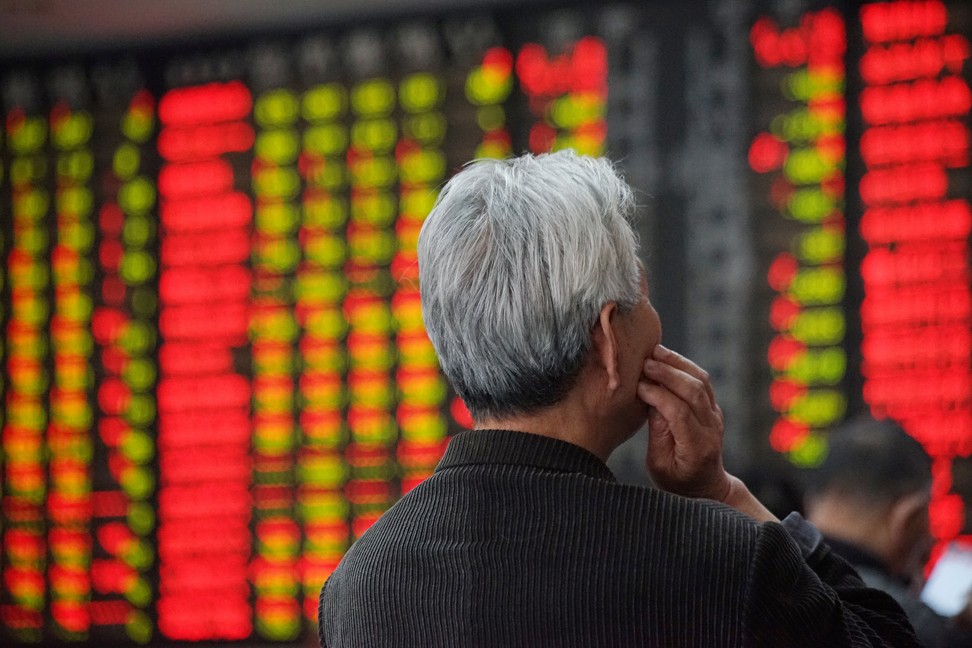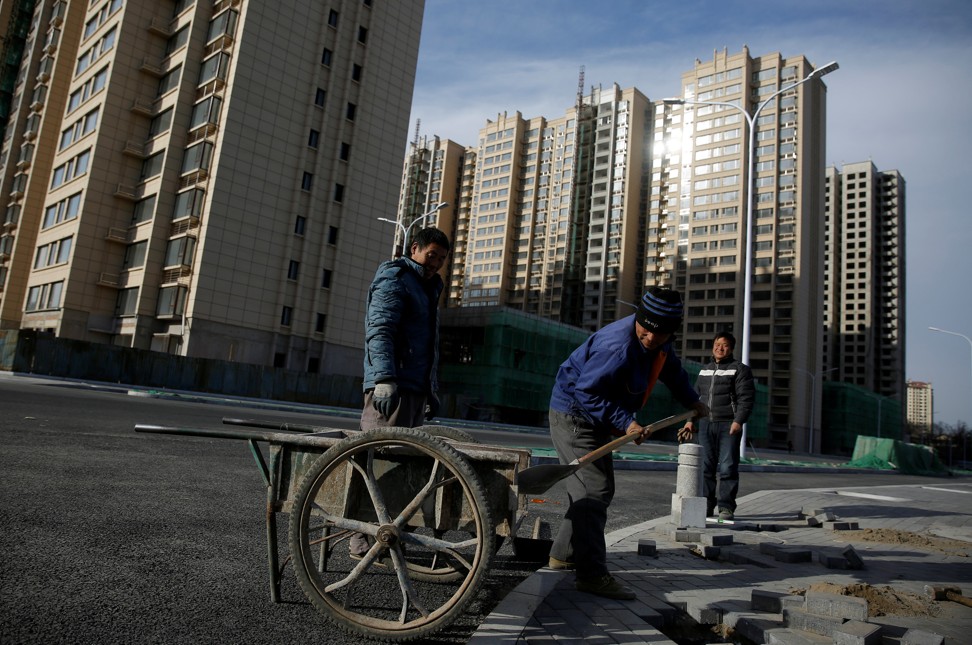
Beijing must remain alert to threat of financial crisis, senior adviser says
Nation’s economy has been ‘hijacked’ by property, creating a huge threat to financial stability, government counsellor Xia Bin warns
The financial risk facing China is far larger than official numbers suggest and Beijing must do more to prevent the situation becoming a crisis, a senior adviser to the government warned on Monday.
In a speech made in the Chinese capital, Xia Bin, who has been advising the State Council – China’s cabinet – on financial policy since 2009, painted a far less rosy picture of the country’s financial industry than the one presented by Beijing.
“Systemic risks are elusive and spread fast” in China, said the 67-year-old, who was a key figure in a clean-up campaign of non-banking financial institutions two decades ago, when he was a senior official at the People’s Bank of China.
Beijing must remain alert to the threat of a financial crisis, he said, adding that government indicators did not reflect the true dangers.
China’s official non-performing loan ratio, for instance, bore little resemblance to the true figure, he said.
“From a dynamic perspective, it should be beyond [the official figure of] 2 per cent.”
Similarly, banks’ exposure to the property market was far higher than official figures suggested, he said. Official numbers say that about a quarter of all outstanding bank loans are linked to real estate, but Xia said the real figure could be as high as 80 per cent if all loans that used property as collateral were taken into account.
The whole Chinese economy had been “hijacked” by property, and that had created an enormous threat to the country’s financial stability, he said.
Chinese President Xi Jinping has made financial risk control a top economic priority, with much of the emphasis on reducing debt to avert a credit crisis.
Last year, the government set up the Financial Stability and Development Commission to enhance regulatory coordination, and empowered the central bank to increase oversight from a macro-prudential perspective. In March of this year, it merged the national banking and insurance regulators in a bid to bring an end to regulatory arbitrage.
Xia said that to tackle financial risk at its roots, China had to slow down the growth of its money supply and deflate its property bubble. At the same time, the country needed to keep its GDP growth on track to give it the economic leeway it needed to reduce risk.
Much of China’s financial risk stems from a massive government stimulus package. From 2009-12, the combined money supply was 50 trillion yuan (US$7.89 trillion), while a further 70 trillion yuan was pumped into the economy in the five years that followed.
Xia said that China had learned a lesson from adopting such a loose monetary policy and that it would not be seen again.
“[The government] needs to strike a delicate balance,” he said. “If it tightens [its monetary stance] too much, bigger risks will appear, but it can’t keep loosening it, as it will eventually have to take responsibility [for doing so].”
The growth of M2, the broad measure of money supply, slowed to 8.3 per cent at the end of last month, from 17.8 per cent in 2008.
In its monetary policy report released on Friday, China’s central bank said “structural and other deep-rooted problems still restrain the economic growth” and that “there are still heavy tasks for structural adjustment, reforms and resolving important risks”.
To enhance its oversight of the banking sector, the People’s Bank of China said that from next year the vast majority of financial institutions – those whose assets are less than 500 billion yuan – will be included in its new macro-prudential assessment framework.



